Imagine standing at the heart of a thriving business landscape where innovation pulses through the air like electricity.
Welcome to Raleigh, a city where startups are not just businesses, they’re beacons of potential illuminating North Carolina’s famed Research Triangle Park.
Raleigh’s startup scene is a formidable nexus of tech entrepreneurship, a community where angel investors eagerly seek the next big idea.
As a business owner wading into these vibrant waters, understanding this ecosystem isn’t just beneficial—it’s critical.
This is where tomorrow’s success stories take shape, where business incubators and accelerators provide the forge for raw ideas to become market leaders.
In this dive into the Raleigh startups universe, anticipate a journey through the essential local economic development strategies, uncover the impact local mentorship programs have on burgeoning businesses, and explore the innovative companies that have already made their mark.
By the article’s end, you’ll have garnered insights into leveraging the Raleigh-Durham startup ecosystem for growth and steering your venture towards the limelight.
Here’s to not just charting a course but redefining it amidst Raleigh’s constellation of startup stars.
Raleigh Startups
| Startup | Industry Focus | Product/Service Type | Market Status/Stage | Notable Investors/Partnerships | Key Feature/Offering |
|---|---|---|---|---|---|
| K4Connect | Senior living tech | Integrated technology solutions | Growth | Intel Capital, Sierra Ventures | Smart home products for seniors |
| Pendo | Software | Product experience platform | Growth | Sapphire Ventures, Meritech Capital | User behavior analytics |
| PrecisionHawk | Drones, Agriculture | Drone technology and data | Growth | Verizon Ventures, Yamaha Motors | Advanced drone analytics |
| Tanium | Cybersecurity | Endpoint security and management | Growth | Andreessen Horowitz, TPG | Real-time security data |
| JupiterOne | Cybersecurity | Compliance and security ops | Emerging | Bain Capital Ventures, Sapphire Ventures | Infrastructure security analysis |
| Republic Wireless | Telecom | Mobile virtual network operator | Growth | Bandwidth Inc. | Affordable mobile phone service |
| Pryon | AI, Enterprise | Augmented intelligence | Emerging | Revolution’s Rise of the Rest | AI-driven enterprise solutions |
| Dropsource | Software | Mobile app development platform | Growth | IDEA Fund Partners | No-code mobile app creation |
| Unite Us | Health Tech | Coordinated care network | Growth | Oak HC/FT, Town Hall Ventures | Social determinants of health data |
| CData Software | Data Management | Data connectivity solutions | Growth | Updata Partners | Data integration software |
| Medicom Technologies | Health Tech | Medical communication platform | Emerging | Undisclosed | Secure medical communication |
| Phononic | Semiconductor, Cooling | Solid-state cooling solutions | Growth | Goldman Sachs, Eastwood Capital | Thermoelectric cooling |
| Tray.io | Software | General automation platform | Growth | Meritech Capital, GGV Capital | Workflow automation |
| Well | Digital Health | Health and wellness platform | Emerging | Khosla Ventures, Alphabet’s GV | Personalized health insights |
K4Connect

K4Connect creates products aimed at helping and empowering people with impairments and older folks. The company’s products promote family and community interaction while enabling better lifestyles and smarter living environments.
The first product from K4Connect, K4Community, is a ground-breaking amenity for Senior Living Communities designed to make residents’ lives easier, healthier, and happier while giving operators the knowledge and analytics required to deliver superior care, unmatched hospitality, and operational excellence. K4Connect, a small technology business with 62 workers and a $20.0M annual sales, is based in Raleigh, North Carolina.
Pendo

The goal of Pendo is to improve the software experience for everyone. A new breed of businesses that place the product at the centre of everything have emerged thanks to Pendo’s product experience platform, which enables businesses to quickly and efficiently turn product intelligence into action.
The biggest corporations in the world, such Verizon, Morgan Stanley, LabCorp, OpenTable, Okta, Salesforce, and Zendesk, are among Pendo’s clients. Pendo wants to help product and digital executives worldwide succeed through Mind the Product and customer communities, sponsored events, and podcast. Pendo has offices all around the world and its headquarters are in Raleigh, North Carolina.
PrecisionHawk

Since its establishment in 2011, this business has developed and integrated drone technology that makes use of aerial views, and it is now recognised as a global industry leader. Several marketing experts and researchers predict that existing firms will spend $13 billion on drones, therefore PrecisionHawk plans to move with pinpoint accuracy to seize all the opportunities that lie ahead.
This corporation depends on aerial technology to fuel growth and spur innovation, from something as straightforward as building to catastrophe response. These drones increase productivity, pave the way for safety, bring in more money, and alter how businesses view and manage their assets and resources.
Tanium

Tanium, the only company in the market to offer convergent endpoint management (XEM), is driving a paradigm shift in how complex security and technological environments are managed. By combining IT, Operations, Security, and Risk into a single platform that offers thorough device visibility, a unified set of controls, and a common taxonomy for a single shared purpose—protecting critical information and infrastructure at scale—only Tanium protects every team, endpoint, and workflow from cyber threats.
Tanium is ranked among the Best Big Workplaces in Technology by Fortune and has been included on the Forbes Cloud 100 list for six years running.
JupiterOne
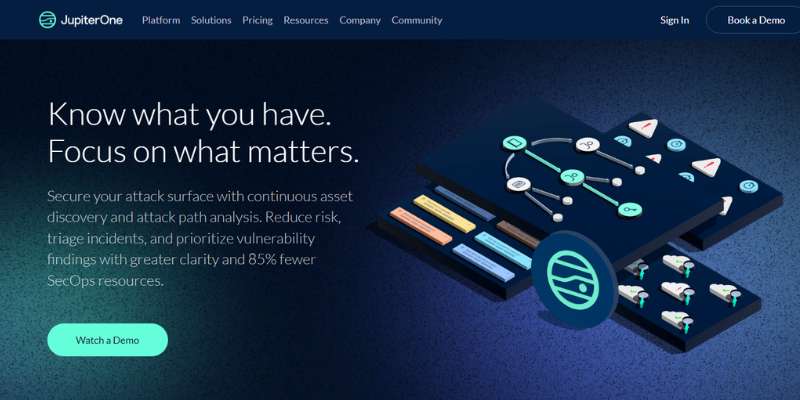
The idea that complexity is the enemy of security operations and assurance served as the foundation for JupiterOne. Organizations need centralised view of resources and assets from all of their various platforms, relationship mapping, and environment change measurement in a single, searchable repository to combat complexity.
JupiterOne (jupiterone.com) is the first software cloud-native security and compliance platform built on a graph data model, and is trusted by market leaders including Reddit, Databricks, Auth0, and Addepar.
It gives you the ability to develop and oversee your whole security procedure, from policy creation to compliance and certifications to running a secure cloud infrastructure as your business develops and grows swiftly. It is the framework that makes digital transformation secure.
Republic Wireless
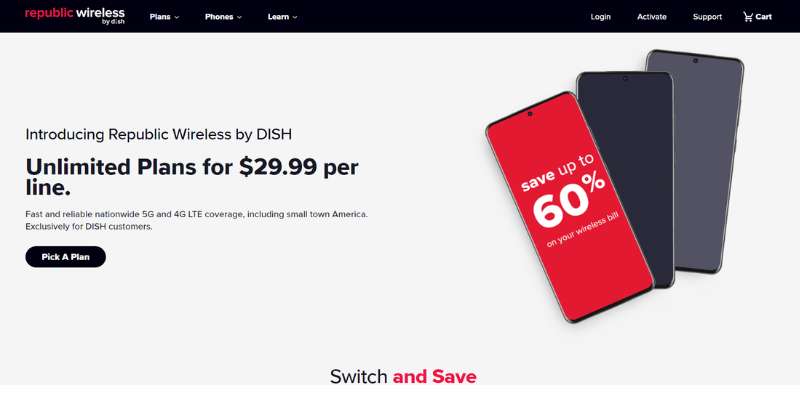
The first hybrid Wi-Fi and cellular network in the country, Republic Wireless offers unlimited speak, text, and data with no contracts. Their goal is to increase everyone’s access to and affordability of cellphones.
Republic Wireless pays its employees an average salary of $56,015 annually, which is competitive for its sector and location. Virgin Mobile USA, Digital Asset, and Cricket Wireless are some of its highest-paying rivals, with annual salaries of $84,182, $61,183, and $45,542, respectively.
Republic Wireless, a small communications firm with only 100 workers and a $100.0M yearly sales, is headquartered in North Carolina.
Pryon

The best platform for managing content and knowledge is called Pryon. They fill knowledge gaps, improve consumer experiences and employee efficiency. Businesses like Georgia Pacific utilise Pryon to enhance all facets of customer service and support, decrease compliance events, enhance employee onboarding, and improve health and safety outcomes.
Drop Source

Drop Source, a software company founded in 2014, is renowned for producing potent mobile applications that delight users and clients alike as they immerse themselves in these works of art. They have used their solid tech foundation to assist numerous Fortune 500 organisations in designing interactive apps. They regularly create dynamic apps that are quicker and more effective as a consequence.
Unite Us
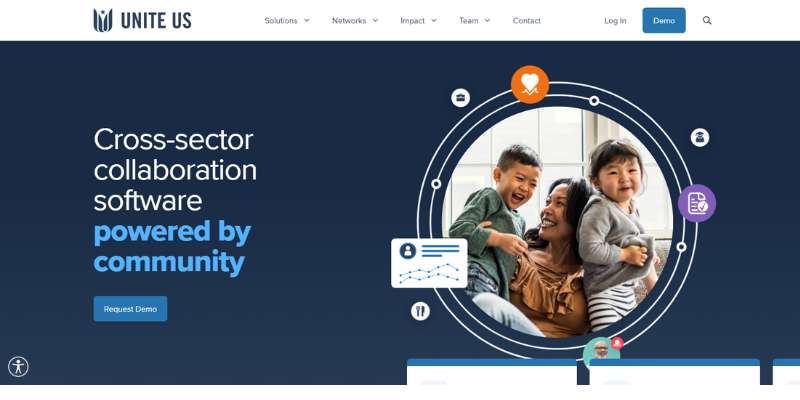
They are a technology firm that creates networks of coordinated care for providers of health and human services. The business was established to support those who put their lives in danger to defend us all, and it still caters to veterans’ needs.
With the help of the business, providers from many industries may send and receive secure recommendations, follow each person’s progress in terms of their overall health, and submit reports on concrete results for a wide range of services in a centralised, cogent, and cooperative ecosystem.
Additionally, to ensure that their networks have a strong basis, launch successfully, and continue to grow and develop, their committed team forges genuine, long-lasting ties. Communities may modify how they collaborate and evaluate their results with the use of this social infrastructure.
CData Software
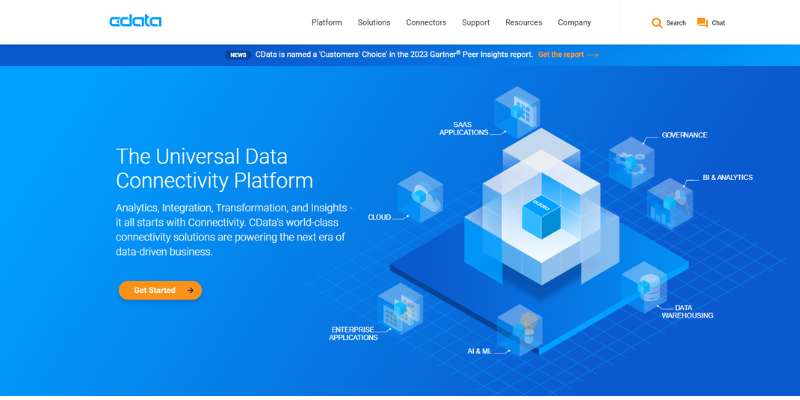
Leading supplier of data access and networking solutions is CData Software. They specialise in the creation of drivers and data access technologies enabling real-time access to databases, Web APIs, and online or on-premise applications.
They want to make connecting to data easier. With simple-to-use data providers, drivers, and tools available from any technology able to communicate with main database standards, they offer a straightforward way to integration.
With less complexity and price, this method of integration enables firms to enjoy the enormous advantages and cost savings of integration. Multinational corporations including Microsoft, Sony, Xerox, Cisco, Dell, Motorola, and Intel are among the list of clients.
Medicom Technologies

They developed the first federated health information network, a potent tool for linking various data silos with a unified user interface. By establishing health information networks with service and support groups that are knowledgeable about their local areas, Medicom has adopted a novel strategy to better serve providers.
These service and support groups send teams to hospitals all across the country with local resources that can rapidly and effectively provide community-based solutions since they are familiar with their clients.
Phononic

The cooling and refrigeration industries have been completely transformed by this creative firm. Compressors that are large and bulky and emit toxic gases into the atmosphere will soon be a thing of the past. Phononic aims to do away with this outmoded and obsolete technology that is no longer effective.
They have revamped the cooling system using semiconductor technology and created a chip that is noticeably smaller than the old-style compressors to perform the same function.
The safe transfer of data and the quick and efficient delivery of perishable goods in the market are made possible by the employment of these thermoelectric chips in a variety of devices, from common household freezers to international communication networks.
Tray.io
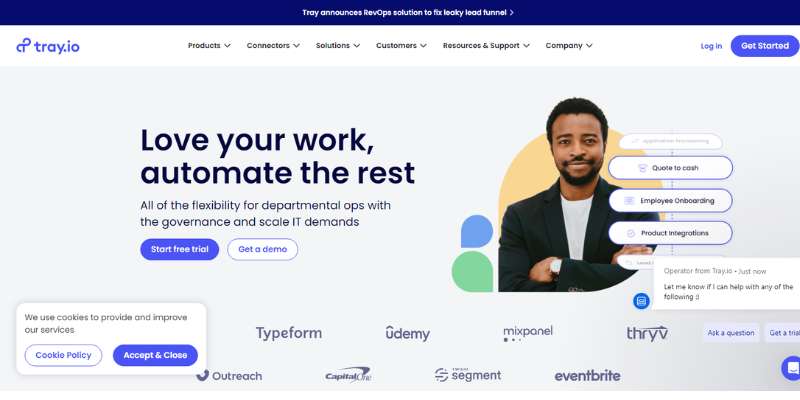
A low-code, cloud-first solution to automation is Tray.io. They have created a secure, scalable, and resilient platform that combines disparate processes to produce effective business results.
Organizations can link their whole cloud stack using the Tray platform’s APIs, and customers can quickly construct automations that power their business processes using clicks or code due to a visual workflow builder.
Their current focus is on the automation and integration of cloud services, but their longer-term objective is to provide a platform that is open to any software development use cases. Their task is to create a cutting-edge product that is robust and complete, beautiful, and simple to use.
Well

A provider of health technology and services, Well aims to be the most successful global partner in the development of personalised health. To help its members achieve their health goals, Well acts as a trusted, personalised health guide. Its consumer health platform is the first to proactively deliver personalised health advancement at scale.
They are altering how people navigate their health through concierge and engagement-based health counselling, powered by a unique, AI-driven health engine, and helping organisations save money by improving employee health and engagement.
FAQ On Raleigh Startups
What’s Driving the Startup Boom in Raleigh?
Ah, the energy here? Infectious. It’s the perfect storm: Research Triangle Park magnetizes talent, while NC State University churns out innovations. Local policies? Super startup-friendly.
Plus, venture capital—it’s flowing. Everyone’s eyeing Raleigh; it’s where the growth’s at.
How Does Raleigh’s Tech Scene Compare to Silicon Valley?
We’re different, but proud of it. Raleigh’s not trying to be another Valley. Our strengths? Biotech, cleantech, you name it. The local business climate? Warmer, cost-effective.
And the community? Tight-knit. Supportive. The vibe? It’s all about collaboration here.
Can You Name Some Successful Startups from Raleigh?
Absolutely! We’ve got Pendo—huge in software. WedPics took on bridal photos and won. FilterEasy? They’re breathing new life into air filters.
These success stories, they’re just the beginning. Raleigh’s startup fabric is rich and getting richer.
What Funding Opportunities are Available for Raleigh Startups?
Funding? It’s out here. Angel investors lurk, hunting for the next breakout. Seed funding?
There’s plenty through programs like The Startup Factory. Grants? For sure—if you’re into something innovative. Remember, it’s all about the pitch.
What Role Does Research Triangle Park Play in the Startup Ecosystem?
Think of it as startup central. Home base for tech startups and heavyweight companies alike.
It’s a hub, an innovation factory where small businesses and giants feed off each other’s energy. It’s not just a park; it’s the lifeblood of Raleigh’s business innovation.
How Can Aspiring Entrepreneurs Connect with the Raleigh Startup Community?
Just dive in—the water’s warm. Check out Innovate Raleigh or hit up Triangle Startup Week. The Raleigh Chamber of Commerce? Always ready to help.
And coworking spaces? They’re networking goldmines. Opportunities for connection are everywhere.
Are There Specific Industries Thriving in Raleigh’s Startup Ecosystem?
We’re talking diverse, not one-track. Fintech’s booming, sure. But biotech? Also massive. And the sweet spot—clean tech. Raleigh’s playing the field, not just one game.
We’re seeing growth across sectors, forging a balanced—and robust—startup ecosystem.
What Types of Support do Startups in Raleigh Typically Receive?
Imagine a buffet of resources. Mentorship, check. Coworking spaces offering not just a desk but a community. Business development programs? Got ’em.
It’s an environment that nurtures, from incubation to launch and beyond. Support? It’s the Raleigh way.
Is Raleigh Welcoming to Non-Tech Startups?
Friendly to all! Don’t think it’s all tech, no. We’re seeing a surge in food startups, retail innovators, even social enterprises.
The scope’s wide, the welcome’s wide, and the support’s wide. The local startup scene? It’s an all-embracer.
How Do I Start a Business in Raleigh?
Step one—solid idea. Next up? Hustle down to the City of Raleigh Economic Development office. Paperwork, regulations—get to know ’em. Money matters? Local economic development programs can guide you.
Mentors and advisors? Gold. They’re everywhere—just ask. Starting up is a continuum—think, plan, act, and grow.
Conclusion
As our journey through the vibrant terrain of Raleigh startups winds down, it’s clear that this city’s more than a dot on the map—it’s a hotbed for entrepreneurial spirit. Raleigh’s mix of visionary talent, investor confidence, and a support network that rivals the nation’s best has seen local innovators go from garage setups to boardroom execs.
We’ve seen that the startup adventure here isn’t a solo mission. It’s a community effort—a tapestry of mentorship programs, accelerators, and grassroots networking events. The underlying message? If you’ve got the drive, Raleigh’s got the track.
So, whether you’re knee-deep in startup lore or just getting your feet wet, remember the blueprint for success is written in the collaboration, creativity, and unyielding ambition that epitomizes the Raleigh startup scene. Rise to the challenge, and maybe it’s your name we’ll be dropping in the next big success story. The stage is set. Lights on. Go make your mark.
If you liked this article about Raleigh startups, you should check out this article about Miami startups.
There are also similar articles discussing Phoenix startups, Nashville startups, Chicago startups, and Charlotte startups.
And let’s not forget about articles on Denver startups, Dallas startups, Pittsburgh startups, and Las Vegas startups.





